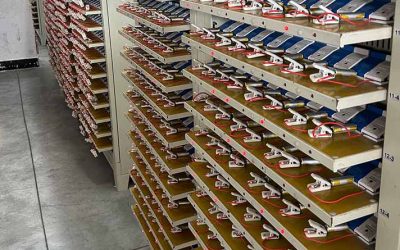Lithium polymer (LiPo) batteries are not commonly used in electric cars for several reasons related to their characteristics and the specific demands of automotive applications:
- Energy Density and Range: Electric vehicles (EVs) require batteries with high energy density to maximize driving range. While LiPo batteries have improved energy density over the years, traditional lithium-ion (Li-ion) battery chemistries (such as lithium nickel manganese cobalt oxide – NMC or lithium iron phosphate – LFP) currently offer higher energy density and thus provide better range per charge.
- Safety and Thermal Management: Electric cars operate under demanding conditions that can generate significant heat during charging and discharging cycles. LiPo batteries are more susceptible to thermal runaway compared to certain types of Li-ion batteries, which can pose safety concerns if not managed properly. Li-ion batteries like NMC or LFP typically have more robust thermal management systems built into their design, enhancing safety in automotive applications.
- Durability and Lifecycle: Electric vehicles require batteries that can withstand frequent charge-discharge cycles over many years without significant degradation. Li-ion batteries have been extensively tested and developed for automotive use, demonstrating better long-term durability and cycle life compared to LiPo batteries.
- Cost and Manufacturing Considerations: Li-ion battery technologies, especially those optimized for automotive applications, have seen significant investment in research, development, and manufacturing scale-up. They benefit from economies of scale and established supply chains, making them more cost-effective for large-scale production in electric vehicles.
- Regulatory Compliance and Standards: Automotive applications require batteries that meet stringent safety and performance standards, including crash safety, environmental impact, and regulatory requirements. Li-ion chemistries like NMC and LFP have been thoroughly evaluated and certified for automotive use, whereas LiPo batteries may face more challenges in meeting these rigorous standards.
While LiPo batteries are used in smaller electric vehicles, such as electric bicycles, scooters, and some niche applications, their adoption in mainstream electric cars is limited due to the aforementioned factors. Automotive manufacturers typically prioritize safety, performance, durability, and cost-effectiveness when selecting battery technologies for their electric vehicle platforms, which currently favors certain types of lithium-ion chemistries over LiPo batteries.
